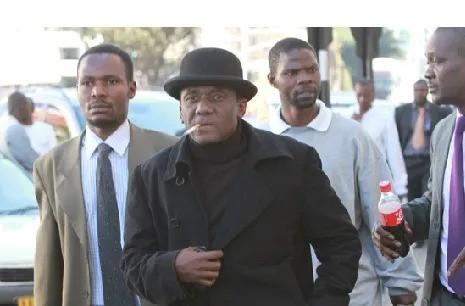News / National
Chamisa's CCC faction rattled
22 May 2025 at 13:35hrs |
0 Views

The official opposition Citizens Coalition for Change (CCC) parliamentary caucus held a formal briefing at Parliament yesterday, attended by 38 Members of Parliament, with 11 others sending apologies, bringing the total number of MPs affirming the caucus to 49. This is according to an attendance register released by the caucus leadership.
Several MPs who did not attend were reportedly deployed on legislative duties across various provinces, participating in at least three active parliamentary committees.
The official caucus meeting, convened under the CCC's recognized parliamentary leadership, appeared to rattle the Jameson Timba-led Citizen National Assembly (CNA) faction, which is widely seen as fronting the political interests of former party president Nelson Chamisa. In response, the CNA-aligned group hastily arranged a rival gathering at a private residence on Cheshire Road in Mount Pleasant, Harare.
This splinter group branded their meeting as a "progressive caucus," borrowing a term commonly used in South African opposition politics. However, there is no such structure officially recognized in Zimbabwe's Parliament, and no party formally registered under the name CNA.
Political observers say the competing gatherings underscore the ongoing internal divisions within CCC, as the party continues to grapple with post-Chamisa leadership uncertainty following his abrupt exit from formal politics in January 2024.
Sources close to the official CCC leadership suggest that the Mount Pleasant meeting was driven by a desperate attempt to gain Chamisa's attention, amid reports that the former leader is now considering a return to frontline politics - and is allegedly eyeing the same MPs he previously urged to resign from Parliament earlier this year.
Despite Chamisa's dramatic departure from the CCC presidency and visible political activity, speculation is mounting that he may be preparing to re-enter the political scene, possibly in anticipation of a mooted Government of National Unity (GNU) arrangement.
The internal factionalism comes at a critical time, as opposition MPs face a delicate balance between consolidating parliamentary influence and navigating uncertainty about the party's future direction and leadership.
As the situation develops, political analysts warn that factional instability could weaken the opposition's parliamentary effectiveness, especially if no clear resolution emerges regarding leadership legitimacy and unified party strategy.
Several MPs who did not attend were reportedly deployed on legislative duties across various provinces, participating in at least three active parliamentary committees.
The official caucus meeting, convened under the CCC's recognized parliamentary leadership, appeared to rattle the Jameson Timba-led Citizen National Assembly (CNA) faction, which is widely seen as fronting the political interests of former party president Nelson Chamisa. In response, the CNA-aligned group hastily arranged a rival gathering at a private residence on Cheshire Road in Mount Pleasant, Harare.
This splinter group branded their meeting as a "progressive caucus," borrowing a term commonly used in South African opposition politics. However, there is no such structure officially recognized in Zimbabwe's Parliament, and no party formally registered under the name CNA.
Political observers say the competing gatherings underscore the ongoing internal divisions within CCC, as the party continues to grapple with post-Chamisa leadership uncertainty following his abrupt exit from formal politics in January 2024.
Sources close to the official CCC leadership suggest that the Mount Pleasant meeting was driven by a desperate attempt to gain Chamisa's attention, amid reports that the former leader is now considering a return to frontline politics - and is allegedly eyeing the same MPs he previously urged to resign from Parliament earlier this year.
Despite Chamisa's dramatic departure from the CCC presidency and visible political activity, speculation is mounting that he may be preparing to re-enter the political scene, possibly in anticipation of a mooted Government of National Unity (GNU) arrangement.
The internal factionalism comes at a critical time, as opposition MPs face a delicate balance between consolidating parliamentary influence and navigating uncertainty about the party's future direction and leadership.
As the situation develops, political analysts warn that factional instability could weaken the opposition's parliamentary effectiveness, especially if no clear resolution emerges regarding leadership legitimacy and unified party strategy.
Source - byo24news
Join the discussion
Loading comments…
































